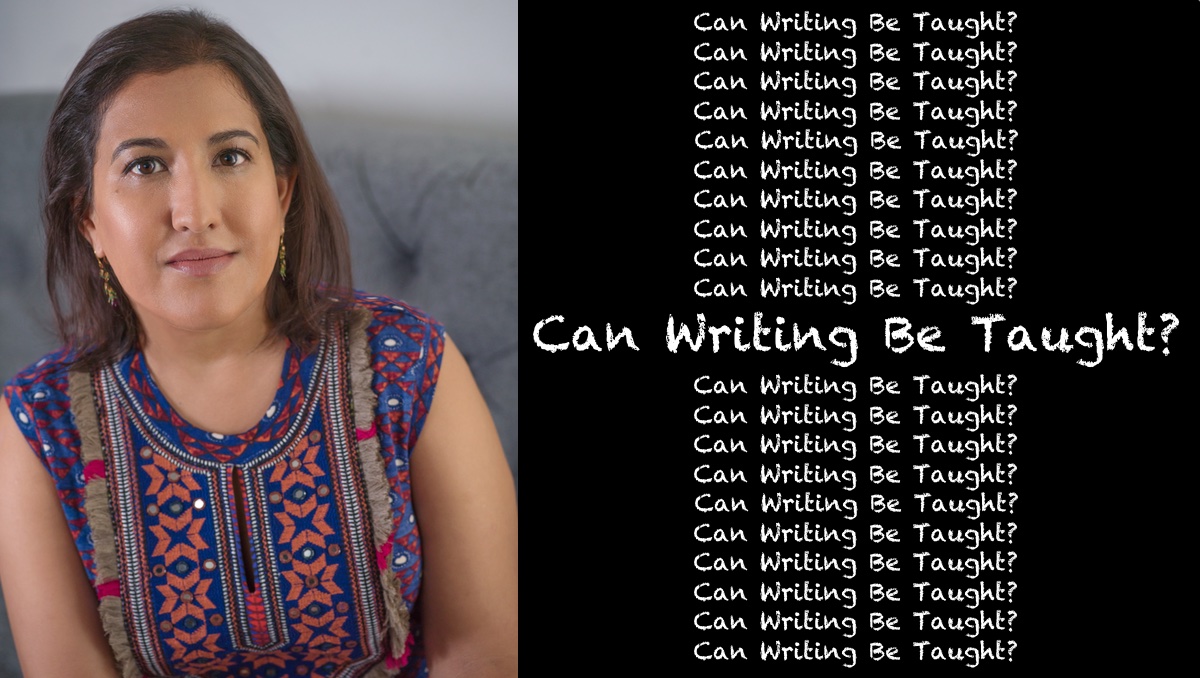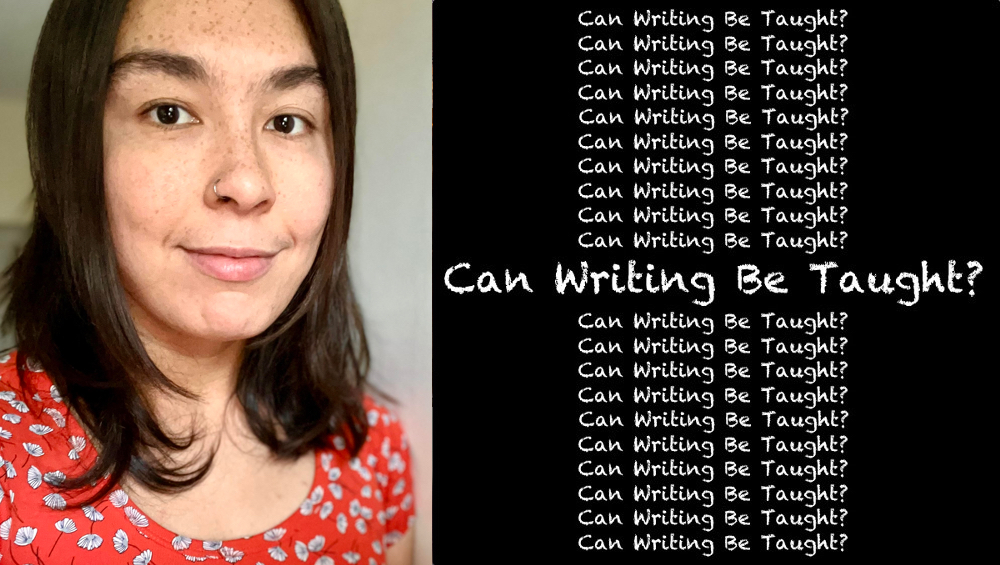Advice
Kavita Das Wants You to Think About Why You’re Writing in the First Place
The author of "Poignant Song" answers our questions about teaching writing—and figuring out your motivations

In our series “Can Writing Be Taught?” we partner with Catapult to ask their course instructors all our burning questions about the process of teaching writing. This time, we’re talking to Kavita Das, author of Poignant Song: The Life and Music of Lakshmi Shankar. Kavita is teaching a one-day seminar on February 22 and a six-week workshop starting March 9, both on the subject of writing about social issues, both of which will draw on her many years of experience writing about culture, race, feminism, and their intersections.
What’s the best thing you’ve ever gotten out of a writing class or workshop as a student?
It’s a toss-up between some of the salient feedback I’ve gotten from writing mentors and some of the great writing friends I’ve made. It’s exciting to see pieces from workshop be published, your own and others, and feel like you were on this journey together.
What’s the worst thing you’ve ever gotten out of a writing class or workshop as a student?
Early on in my writing career, I had writing workshop experiences that shook my confidence as a writer, where I felt the spirit of the critique was not fair or generous. This was true when instructors didn’t set the tone and parameters for the workshop and when the workshop wasn’t diverse.
What is the lesson or piece of writing advice you return to most as an instructor?
When you hit a wall with your writing, remembering what motivates you to write can be fuel to help you get over or through that wall.
Whether you’re writing fiction or nonfiction, I think it’s important to interrogate why you write. When you hit a wall with your writing and can’t figure out how to move forward, remembering what motivates you to write can be fuel to help you get over or through that wall. This is why I start all my Writing About Social Issues classes by asking my students to reflect on why they write.
Does everyone “have a novel in them”?
No, all my writing and workshop experience point to the fact that everyone does not have a novel or book in them. However, I do believe that most people benefit from attempting to put words to certain ideas and emotions they’ve been carrying around inside them. Whether they have what it takes to shape those words into something universally resonant, whether those words are publishable, are separate matters.
Would you ever encourage a student to give up writing? Under what circumstances?
I would never encourage a student to give up writing, especially if they are deriving something positive from writing. However, I might encourage writers who are writing memoirs of trauma to step away from what they’re writing about because it is still too emotionally raw, and to come back to it after they’ve had a chance to heal from and process it.
What’s more valuable in a workshop, praise or criticism?
Although I’m a vegetarian, I use the “hamburger” approach to workshop feedback. I begin with the “bun”— feedback on various positive elements in the piece, whether it’s language, character development, and then I get into the “meat” of the feedback—these are the areas that need work, language or narrative that need greater depth or clarity. Finally, I end with the “bun” again, summarizing my overall feedback, emphasizing the positive elements they can build from. This ensures students get a balance of praise, which is motivating, and criticism, which is actually actionable.
Students get a balance of praise, which is motivating, and criticism, which is actually actionable.
Should students write with publication in mind? Why or why not?
When writers are starting out, I really don’t think they should write with publication in mind. They should write to develop their own voice, their own perspective. As I mentioned, they should also be clear about why they write. Once they’ve grounded themselves in these elements of their writing, then they can start to seek out venues and platforms that are best suited for their writing. If early writers write with publication in mind, they risk trying to create a voice or style that fits a publication, rather than ones that speak for themselves.
In one or two sentences, what’s your opinion of these writing maxims?
- Kill your darlings: I prefer to reframe this as figuring out which darlings get to stay and which ones you need to bid adieu to because they are not serving the narrative. But always remember, the darlings were sometimes the spark that helped you get the words down on the page, so we should be kind to them even if we’re asking them to leave.
- Show don’t tell: I think it’s about balancing the showing and the telling. And also figuring out if this is more of a “show” piece or a “tell” piece, and therefore what the balance should look like for each piece.
- Write what you know: In general, writers should be driven by a mix of curiosity and compassion. If you need to know something for your narrative, if its something beyond your sphere of knowledge or experience, then approaching it with curiosity and compassion can guide you to research and write about it with integrity.
- Character is plot: Yes, I know this to be true because as a reader, I will follow a well-developed character through strange plot twists. However, if a character is one-note or half-baked, I don’t even feel like following them across the street.
What’s the best hobby for writers?
It’s interesting, I just published my first book last year and it was a five-year slog. In the meantime, I was writing and publishing articles and essays. However, I’ve come to realize that writing keeps me in my head all the time and I actually need hobbies that are tactile, physical, which give my mind a rest so I can return to writing refreshed. So, I’m learning how to knit and I’m getting back to yoga. I also love walking around the city, especially with my hound Harper.
What’s the best workshop snack?
The best workshop snacks are easy to share, not too noisy, and contain variety so people can pick what they like—for example, variety packs of chocolates. This reminds me, I need to pick some up for my upcoming Catapult classes.








